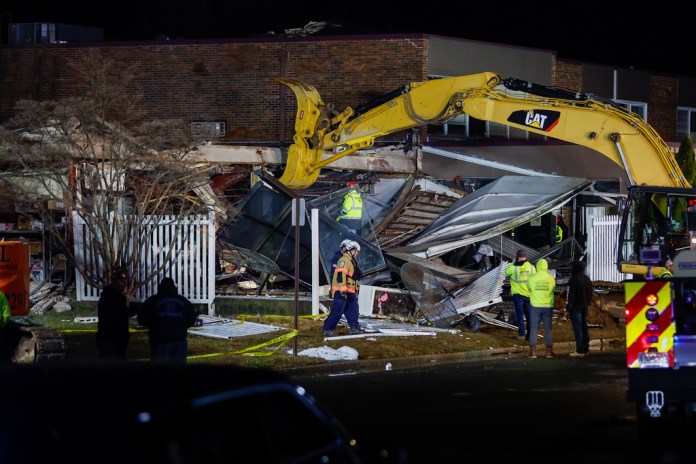Pennsylvania appeals court rules against date requirement for mail ballots in past election – Washington Examiner
A Pennsylvania appeals court recently ruled against the state’s requirement for mail-in voters to date their ballot envelopes, stating that this requirement violates the free and equal elections clause of the state constitution. This decision stemmed from a previous election where ballots were disqualified due to incorrect or missing dates, leading to complaints from voting rights groups that the rule resulted in arbitrary disenfranchisement of voters. The court’s 3-2 majority found that the invalidation of timely ballots was unconstitutional.
While the ruling has uncertain immediate consequences—for example, it may be appealed to the Pennsylvania Supreme Court—Pennsylvania election officials have already taken measures to redesign ballot envelopes to minimize such errors in the future. The opinions among judges were divided, with two dissenting judges raising concerns about how to handle ballots that were already cast without proper dating.
This case forms part of a larger legal debate regarding mail-in voting laws in Pennsylvania, with ongoing cases, including one pending before the U.S. Supreme Court, that continues to address issues surrounding provisional ballots for voters who submit mail-in ballots with technical flaws. The Republican National Committee is calling for the Supreme Court to intervene against the acceptance of certain provisional ballots, arguing that it could create confusion and further complicate the electoral process.
Pennsylvania appeals court rules against date requirement for mail ballots in past election
A panel of Pennsylvania appeals court judges ruled on Wednesday that the state’s requirement for mail-in voters to date their ballot envelopes violates the free and equal elections clause of the state Constitution.
The Commonwealth Court of Pennsylvania’s decision surrounds a dispute from a previous election where ballots were disqualified for missing or incorrect dates in Philadelphia and individual plaintiffs backed by voting rights groups sued, arguing that the date requirement led to arbitrary disqualifications.
A 3-2 majority on the panel dealt a blow to the Republican National Committee and the Republican Party of Pennsylvania, which defended Pennsylvania’s rules as constitutional.
The majority found that the dating requirement “resulted in the arbitrary and baseless rejection of thousands of timely ballots, resulting in disenfranchisement in violation of the free and equal elections clause,” according to the decision published on Wednesday.
Immediate impact on Pennsylvania election uncertain
The ruling’s immediate effect remains unclear, as the case may require additional proceedings, such as a possible appeal to the Pennsylvania Supreme Court, to determine whether it applies statewide for the election.
To address the complaints of voting rights groups, Pennsylvania election officials redesigned the ballot envelopes, aiming to reduce errors where voters mistakenly write unrelated dates, such as their birth date.
Still, since election policies vary across Pennsylvania’s counties, the effect of any single ruling on statewide election procedures is complex. Some counties offer “curing” options for mail voters, allowing corrections on ballots with minor technical flaws, while others do not.
Two judges raise grave concerns on counting ballots
Two judges on the appeals court issued stern dissents from the majority, with those judges saying the ruling “changes voting rules after thousands, if not millions, of ballots already have been completed and cast by Pennsylvania voters.”
“What happens to the ballots already cast with undated or misdated declarations? Are they now valid? What do county boards of elections do with replacement mail ballots that have been cast with corrected or filled-in declaration dates? Are the replacement ballots counted, are the original, defective ballots counted, or both?” Judge Patricia McCullough asked, appearing to raise concerns about whether some voters could have their ballots mistakenly counted twice.
Judge Matthew Wolf raised concerns about the timing for any redress, given how soon Election Day is now.
“But this Court, an intermediate appellate court, will most likely not be the last to speak on the issue, and the timing of this intermediate appellate Court’s decision puts the Pennsylvania Supreme Court in a near-impossible position,” Wolf wrote.
More to come at the nation’s highest court
The ruling comes amid a broader legal debate over mail-in ballot requirements in Pennsylvania, with several cases still unresolved, including one pending before the U.S. Supreme Court known as RNC v. Genser.
In the Genser case, a pair of individual voters contend that the Supreme Court should allow provisional ballots cast in person to be counted if voters’ mail ballots were rejected for technical errors, including date mistakes.
“At every election, thousands of voters make mistakes in completing their mail-ballot packets that prevent their ballot from being opened and counted,” a brief filed on behalf of the voters on Wednesday reads. The brief cited a lack of a voter’s signature on a declaration envelope, the lack of a date or an incorrect date written on the declaration envelope, or a ballot that is mailed in without a secrecy envelope as the most common defects that lead election officials to reject mail-in ballots.
Conversely, the RNC has asked the Supreme Court to intervene by Friday to undo the Pennsylvania high court’s decision to accept certain provisional ballots by voters who made errors on their mail-in ballots.
The RNC argues that providing provisional ballots to voters who make errors on their already-submitted mail-in ballots could sow confusion in the final days before the election. They have pointed to the uneven standards for ballot curing across different Pennsylvania counties to argue that some voters in the state, particularly voters from blue counties, may be given chances to fix their ballots, while voters in other counties may simply have their mail-in ballots discarded over the same types of errors without getting an equal opportunity to cast a provisional ballot.
Some Pennsylvania counties that do not give voters a chance to fix mail ballots that are rejected for technical errors point to a state law that says a “provisional ballot shall not be counted” if a voter’s mail ballot was “timely received.”
“We consider the Pennsylvania Supreme Court case to be extremely important,” RNC Chairman Michael Whatley said during a Wednesday afternoon press call.
“Because what it does is that if the ballots aren’t done properly, then they’re being kicked to provisional ballots, which we don’t think is proper. We think that the Pennsylvania authorities should be following the law,” Whatley added.
" Conservative News Daily does not always share or support the views and opinions expressed here; they are just those of the writer."




